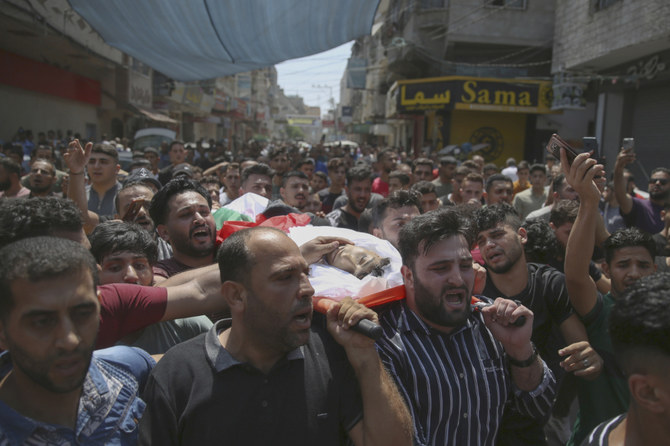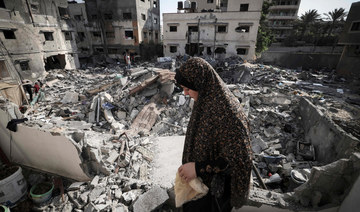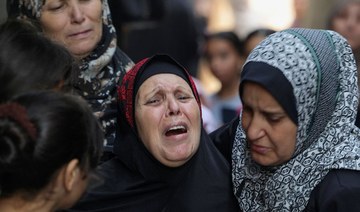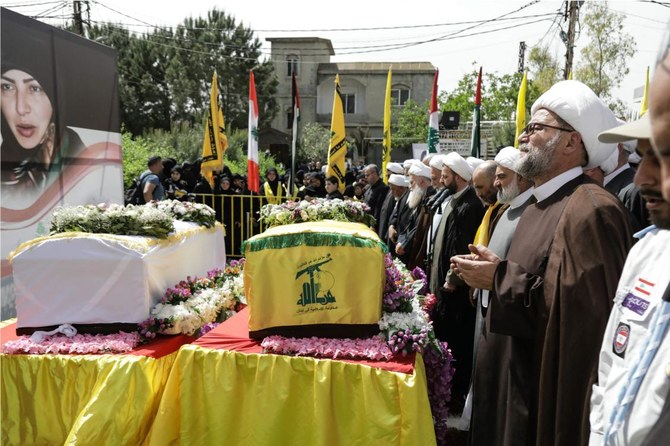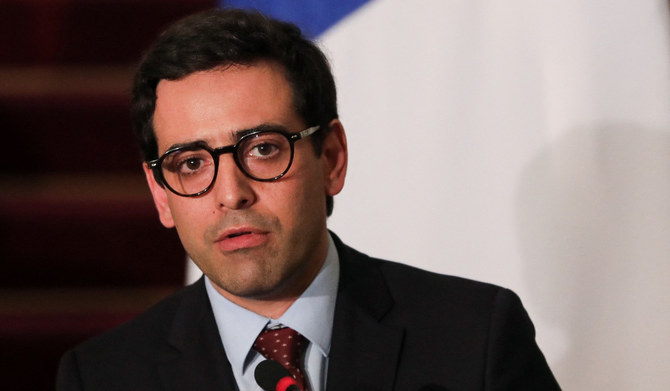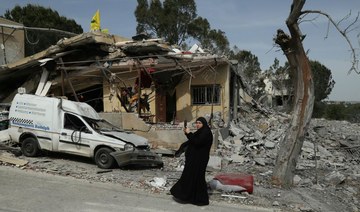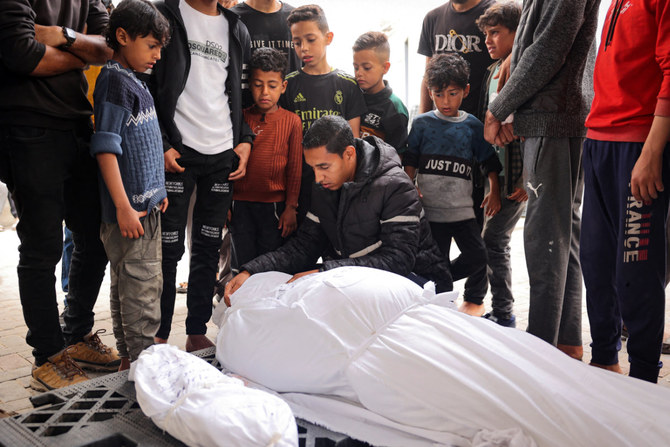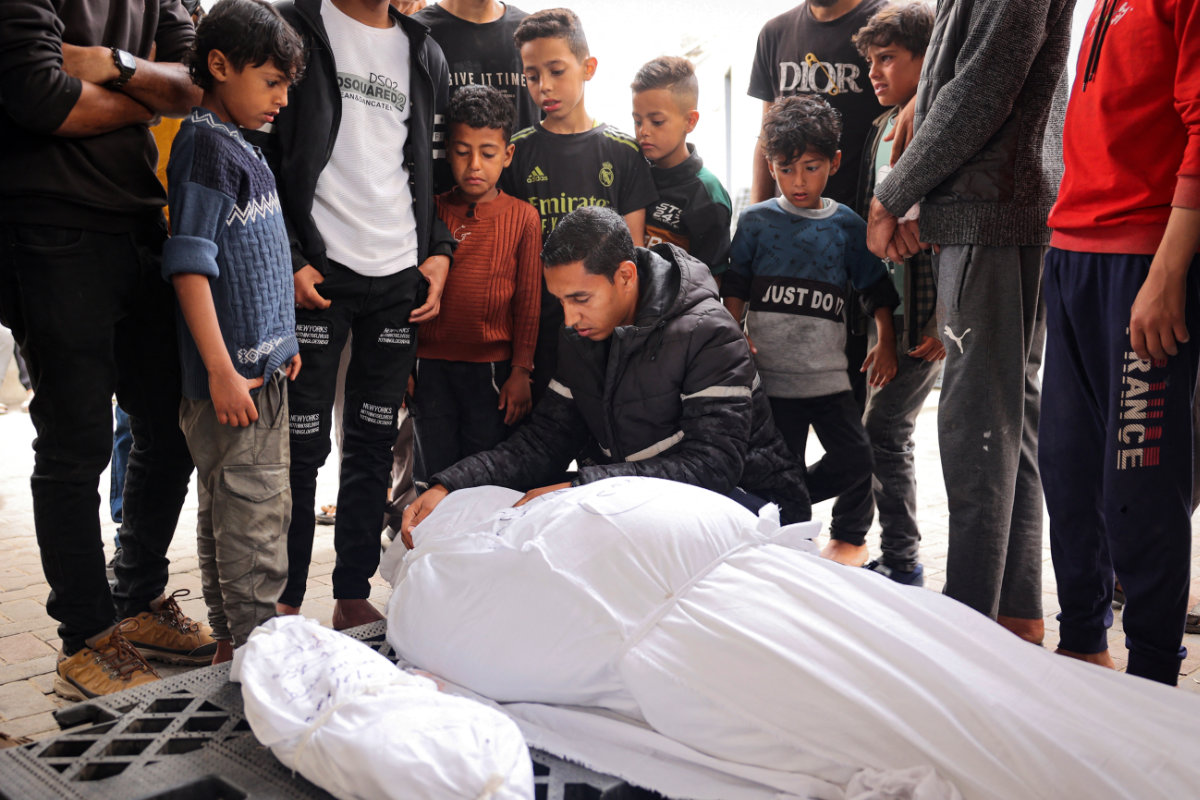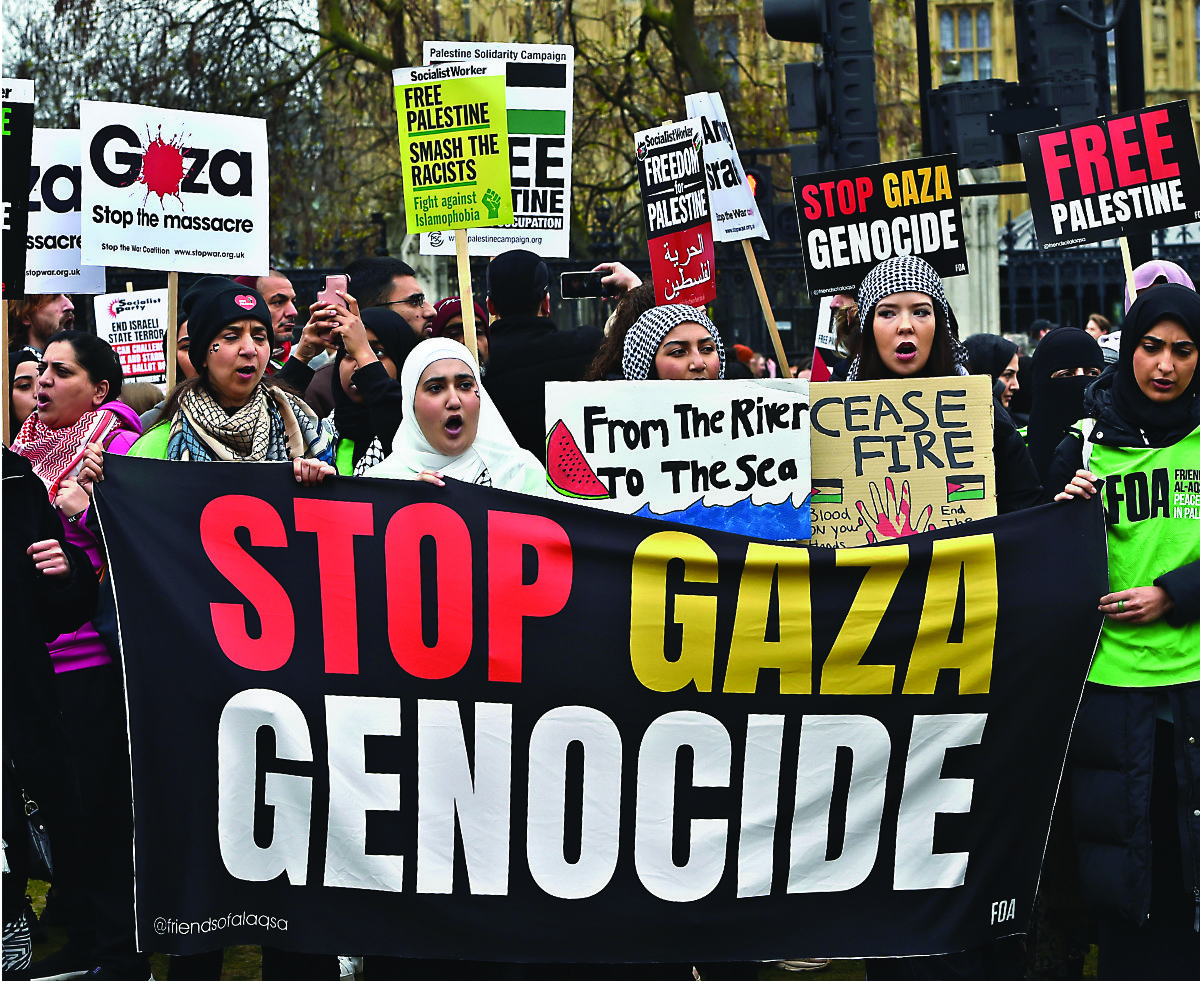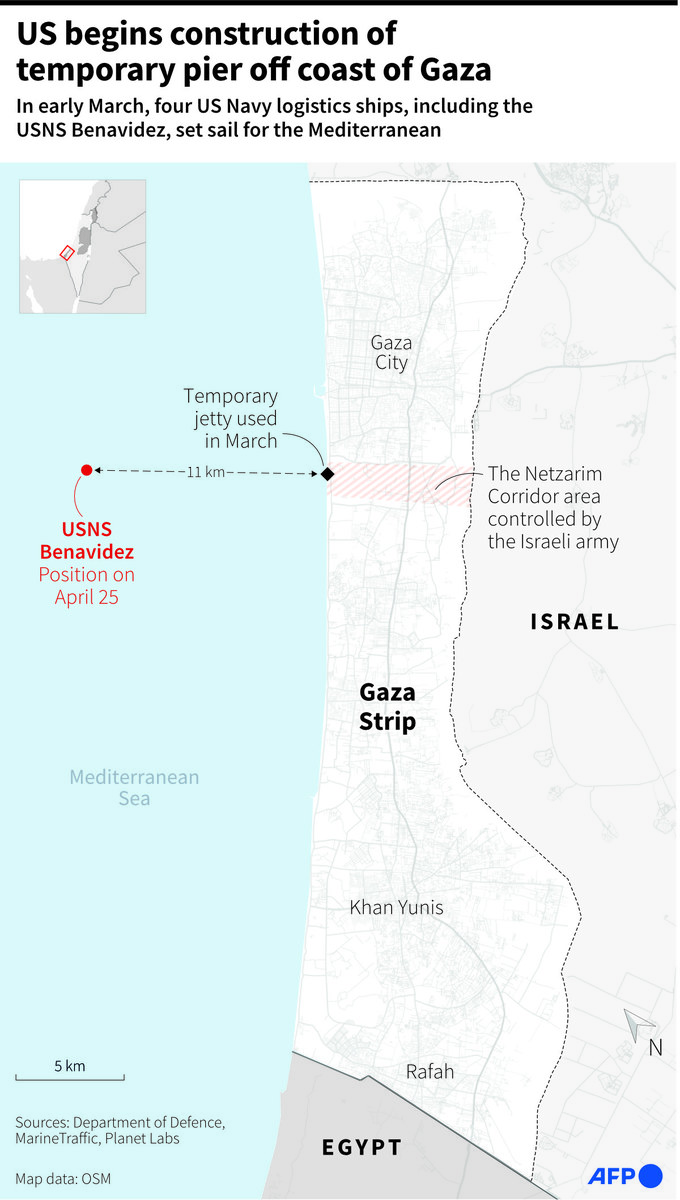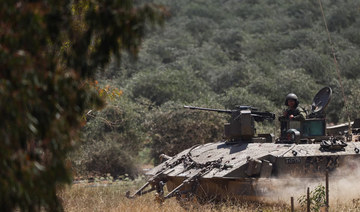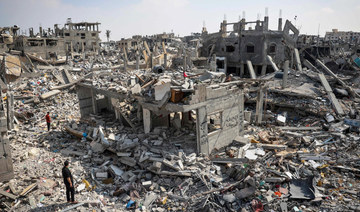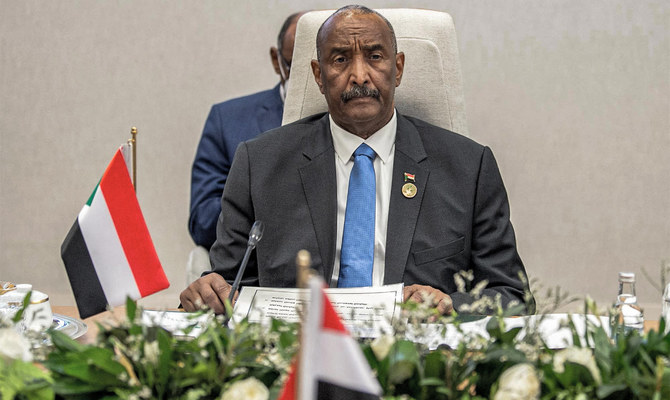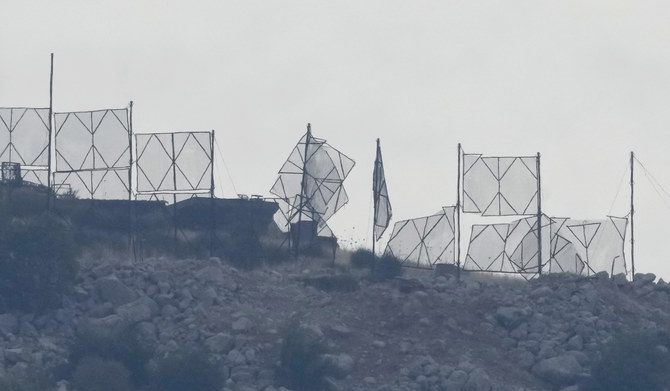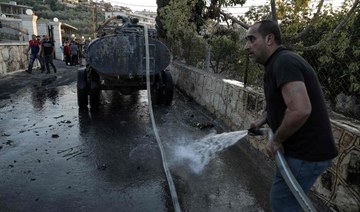NEW YORK: Although a ceasefire between Israel and Palestinian militants, brokered by Egypt late on Sunday, put an end to intense fighting and appears to be holding, it is fragile and the underlying causes of the latest eruption of violence remain, the UN said on Monday.
It added that the cycle of violence will only stop with a political resolution to the decades-old conflict that ends the Israeli occupation and includes a two-State solution, based on the June 1967 borders and in line with UN resolutions and international law.
Tor Wennesland, the UN’s special coordinator for the Middle East peace process, told an emergency meeting of the Security Council that 46 Palestinians were killed and 360 injured during the recent escalation, during which Israel launched 147 strikes on Gaza and Palestinian Islamic Jihad fired 1,100 rockets and mortars into Israel. Hundreds of homes and other civilian infrastructure were destroyed. The figures are provisional and “verification is ongoing,” he added.
“While fully recognizing Israel’s legitimate security concerns I reiterate that under international law, all use of force must be proportionate and take all feasible steps to avoid civilian casualties,” Wennesland said. “Children, in particular, must never be the target of violence or put in harm’s way.”
The UAE, together with China, France, Ireland and Norway, requested the emergency meeting to discuss the recent developments in the Gaza Strip.
Wennesland said that the escalation had exacerbated already chronic shortages of essential medicines in Gaza, and that the closure by Israel of the Erez crossing into the Strip for six days had severe humanitarian consequences for Gazans, including preventing patients traveling for medical treatment in Israel.
“The closures also worsened the already precarious food-security situation in the Gaza Strip,
reducing stocks of basic foods, particularly wheat flour,” he said.
Wennesland thanked Egypt for the role it played in securing the ceasefire, alongside the UN, and also thanked Qatar, Jordan, the US and the Palestinian Authority for their deescalation efforts.
“Together, these efforts helped prevent the outbreak of a full-scale war and allowed for the delivery of much-needed humanitarian relief to the people of Gaza starting earlier today,” he told the council members.
He welcomed the “timely reopening” of the Erez and Kerem Shalom crossings by Israel following the ceasefire, and he called on the leaderships of Israel and Palestine, along with the international community, to step up diplomatic efforts to resume negotiations aimed at securing a viable, two-state solution.
Riyad Mansour, the Palestinian permanent observer to the UN, accused Israel of “murdering and oppressing an entire nation.” He added that Israel’s “right to security has become a license to kill and needs to be revoked,” as he urged the Security Council to “act now.”
“If you are against violence, do not exclude Israeli violence,” he added. “Do not justify it. Are you ready to say, ‘Enough is enough,’ as the highest authority responsible for the maintenance of peace and security?
“Israeli kills our people because it can. When will the world show them that it cannot?”
Mansour told council members that “defenseless Palestinian families need your support; not a nuclear power, not an occupying power,” as he asked council members “to drag the two parties to the peace process, today before tomorrow.”
Gilad Erdan, Israel’s permanent representative to the UN, accused PIJ members of taking their orders from Iranian puppet masters, adding: “Their hate knows no boundaries.”
Opinion
This section contains relevant reference points, placed in (Opinion field)
He drew a parallel between the PIJ and Egyptian Islamic Jihad, the organization to which recently killed Al-Qaeda leader Ayman Al-Zawahiri once belonged.
“EIJ and PIJ share more than a similar name,” Erdan said. “They share the same value of annihilating the free and modern world that we live in.”
While the world welcomed the killing of Al-Zawahiri in a US drone strike on July 31, Erdan said that “UN officials suddenly express deep concern when Israel does the same. It’s hard to understand such double standards.”
He added: “The only remedy for Gazans is for their leaders to stop trying to annihilate Israel and stop investing in terror infrastructure.”
Erdan urged the Security Council to unite behind the condemnation of the PIJ: “Holding a debate and not using the opportunity to fully condemn their war crimes will motivate them to keep (committing more such crimes).”
He also thanked Egypt’s President Abdel Fattah El-Sisi for his efforts in helping to broker the ceasefire and “restoring stability in our region.”
Osama Abdel Khalek Mahmoud, Egypt’s permanent representative to the UN, called on Israeli authorities to end all of their illegal practices and halt the settlement expansion in the West Bank, which he described as “the most flagrant violation of Palestinian basic human rights,” and to lift the blockade of Gaza and allow food and fuel to begin flowing back into the Strip.
He also called on Israel to respect the legal and historical status of the holy sites in Eastern Jerusalem, urged all parties to refrain from targeting civilians, and asked the international community to help revive the peace process.
Mohammed Abushahab, the UAE’s deputy permanent representative to the UN, expressed deep concern about the recent violence in Gaza and stressed the need for all parties to abide by their responsibilities under international law and international humanitarian law. He also condemned the Israeli incursion into Al-Aqsa Mosque as a provocative action.
“The deteriorating humanitarian situation in Gaza cannot bear more shocks,” Abushahab said as he welcomed the truce and offered his country’s “sincere appreciation” to El-Sisi for his role in helping to restore calm.
Abushahab reiterated his country’s support for all regional and international efforts aimed at bringing peace to the Middle East, and renewed its support for a two-state solution.




